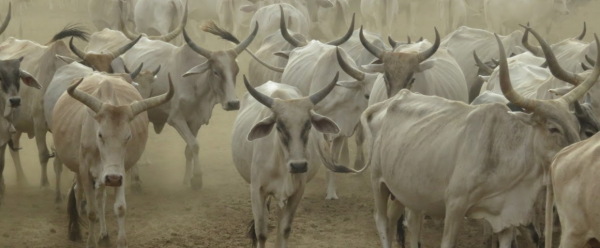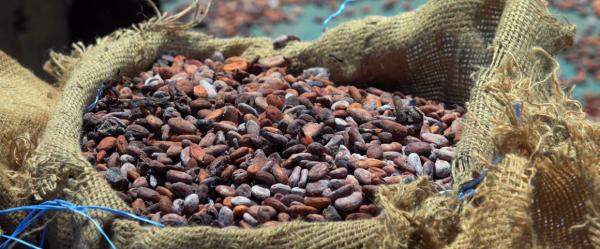Expert view 23 January 2026
- Home
- CIRAD news
- News
- Covid-19 and food security | What risks for Ivorian cocoa planters
Covid-19 and food security | Cocoa planters in Ivory Coast fear a drop in their income

As in most countries, the authorities in Ivory Coast have imposed restrictions to limit the spread of Covid-19 in the country. These restrictions are likely to have repercussions on rural populations, like the cocoa planters in the southern part of the country.
Uncertainty for cocoa planters
The closure of borders, if imposed, could thus reduce the workforce available at the start of the mid-crop harvest of cocoa beans, the seeds of the cocoa tree. Some planters are even stuck in the neighbouring countries they come from. As part of a project to track agroecological innovations by cocoa planters, CIRAD and its partners are monitoring eight villages in the cocoa-growing area. Three of these villages have reported delays or a slowdown in bean purchases. The “pisteurs ” (middlemen) are afraid of catching coronavirus. These cocoa trade intermediaries also report a decrease in transport to Abidjan. Such traffic disruptions could eventually affect the delivery of beans to the country’s ports.
Cocoa farmers are also concerned about the slowdown in maritime transport to Europe and the United States, the main markets for cocoa. Trade in rubber and cashews is already encountering blockages and price drops. Aware that the West has been hard hit by Covid-19, farmers are asking how this “global disease” will impact demand for chocolate and consequently their income. The sale of cocoa beans is the main financial resource for these small independent producers, who do not have savings.
Food security guaranteed in the short term
Such a loss of income would jeopardize their food purchases between now and the end of the year. In some places, the transport restrictions in the country are already reducing the availability of certain food products from the cities or the coasts, such as oil, sugar, or even sea fish. But villages have not yet seen any overall price increases. Only the price of rice has noticeably begun to increase – the price of imported rice in particular rose by around 5% between March and April.
Today, cocoa planters are relying on their own food production . They often grow cassava as well as a type of yam called “cocoa sié”. This can grow in the shade of cocoa trees and produces tubers that weigh several kilos and can keep for a long time provided they are not harvested. Planters are also currently sowing maize and rice, but these crops will not be harvested for another three or four months. In addition, market gardening activities – aubergines, peppers, cabbages – managed by women are also helping to ensure food self-sufficiency for families.
Additional income sources under threat
Although cocoa is their main financial resource, cocoa planter households also sell some of their food production on markets in neighbouring towns. In normal conditions, these sales provide small income supplements that pay for things like imported rice and fish, the main source of protein in the villages. But this activity is now threatened because of limited transport to Abidjan. Although the risks of food shortages in the villages remain very limited, they should nevertheless be carefully monitored, especially regarding the supply and sale of food products across the territory.
An already difficult situation exacerbated by the constraints of Covid-19
Eventually, if the epidemic continues to spread in West Africa, the economic future of cocoa planters seems highly uncertain. The Ivorian government has so far announced subsidies for national exporters. As for the international chocolate industry, it has expressed concerns about this difficult context. But will this be enough for cocoa producers whose income has already been hit by the decline in world cocoa prices over the last 30 years, and by deforestation, climate change and swollen shoot, a virus affecting cocoa plants?
This analysis was produced with the help of observers from the NGO SADRCI as part of a project to track agroecological innovations by cocoa planters conducted in collaboration with the Green Innovation Centre at GIZ, the German Agency for International Cooperation.



























